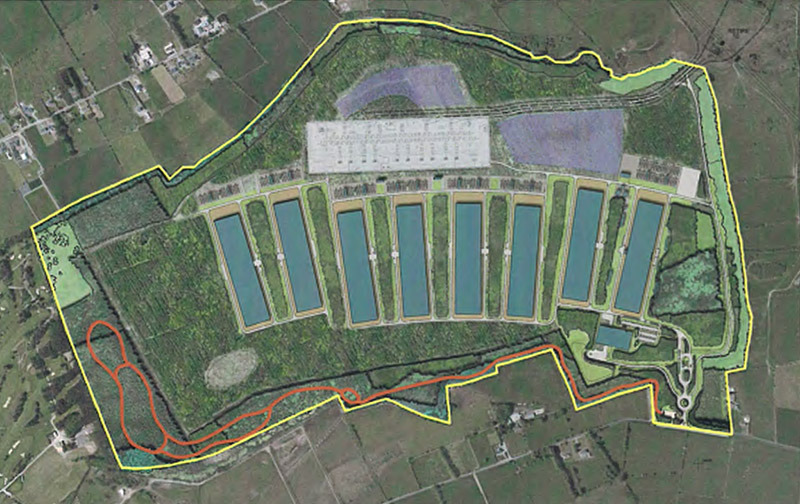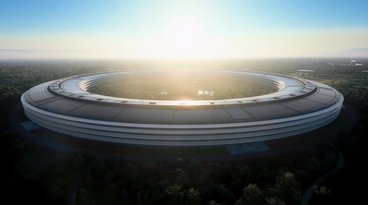Apple details efforts to ease environmental impact at Irish data center
In an effort to allay local concerns over a massive data center project in Galway, Ireland, Apple this week offered greater detail on environmental initiatives it has planned for the site, from forest repopulation to the creation of a public woodland walkway.
Apple's intentions were outlined by its senior director of global data center services Robert Sharpe, who prepared a written statement for inclusion at an oral hearing in Galway County. A copy of the document obtained by TechInsider was published on Friday.
While construction is already underway at the Derrydonnell forest location, locals are concerned future expansions to the site will negatively impact the surrounding area. As proposed, the 850 million euro (about $950 million) facility could ultimately support eight data halls, to be built out over the course of 10 to 15 years, depending on capacity needs. Construction of the first structure has already been approved, but Apple will need to reapply for permits to build prior to starting work on each subsequent data hall.
An Irish planning board received complaints from concerned citizens and environmental groups as to why Apple selected the spot for its forthcoming European data hub.
"Derrydonnell forest, the site of the proposed development, offers a combination of factors that make it uniquely attractive for a data centre," Sharpe said. "It is a large site, currently used for commercial forestry, which sits extremely close to two major high voltage power transmission lines in an area rich in renewable energy resources."
Other topics broached during this week's hearing include construction noise, flooding as a result of deforestation and general environmental concerns. Sharpe, referencing Apple's existing data centers like the Maiden, North Carolina, complex, said the company has extensive experience in building and operating green facilities. Apple makes a concerted effort to conserve precious resources like water and energy, and the Ireland center would be no different, he said.
"The development includes a comprehensive drainage network of retention ponds and soak-away areas that mimic the behaviour of the site today so that there is no increased risk of flooding in the surrounding area," Sharpe said. "The only water the site will use from the town water supply will be drinking water and all other uses will be served by rainwater harvesting."
During construction, Apple plans to pave roads and use electric vehicles whenever possible to keep vibrations and dust to a minimum. The company intends to repopulate the area with native species of broadleaf trees which, once they mature, will serve to hide the data center from view. Apple also promised to protect and enhance areas where the protected wood bitter-vetch plant grows to minimize the impact on local wildlife.
Finally, Sharpe said Apple will build and maintain a five-kilometer woodland walkway and accompanying parking lot accessible to the public during daylight hours.
Apple attorney Rory Mulcahy spoke at the same hearing earlier this week, confirming that the data center will be powered by 100 percent renewable energy sources. Concerns over energy consumption were raised by a representative for a residents group who noted Apple would draw some 300 Megawatts of power if and when all eight data halls go online. Based on current energy usage statistics, that number represents approximately eight percent of Ireland's national capacity.
 Mikey Campbell
Mikey Campbell













 William Gallagher
William Gallagher

 Marko Zivkovic
Marko Zivkovic
 Charles Martin
Charles Martin
 Andrew Orr
Andrew Orr
 Wesley Hilliard
Wesley Hilliard











12 Comments
One of the few corporations I'd actually trust. Just look at the impact Tim is having. He's a really great CEO for Apple.
Apple is one of the last companies I would worry about regarding environmental impact.
Grandstanding. Nothing more.
All these whiners have to do is look at Apple's history with regards to the environment. They're one of the few corporations in the world that can afford to be eco-friendly in all aspects (and one of the only one's that actually are). The only other corporations that come close to Apple's profits are the same companies that are robbing the planet of natural resources and polluting the environment at the same time. Meanwhile, Apple, the most criticized when it comes to the same issues, in fact, does just the opposite.